When I consider forgiveness, I know that how it plays out in our own hearts and intimate communities is foundational to everything else we do. At the same time, my mind and heart keep turning to the waters in which we swim: the economic and societal forces that shape our sense of reality and possibility in ways that may be difficult to discern.
A significant experience of dissonance around forgiveness for me came on a 2007 trip to Northern Uganda. My husband and I traveled to Uganda following decades of instability and brutal civil wars in order to support a dear friend who had fled from former President Idi Amin and had subsequently returned to participate in the healing process. During that time the local population had been caught between a ruthless insurgent (more than happy to build an army of abducted child soldiers and terrorize civilians) and an equally ruthless army of the ruling party (glad for the excuse to punish a troublesome ethnic/political minority as harshly as possible).
The trauma of war was painfully evident, wherever we looked and with whomever we spoke. Much of the population was still in internal displacement camps, and as we listened, we heard from everyone heartbreaking stories of atrocity and loss.
Though hostilities had ceased (the rebel leader was hiding in a neighboring country), a major sticking point in the formal peace talks was lack of sufficient pressure to bring him before the International Criminal Court for war crimes. While nobody doubted his guilt, the local Acholi people were willing to abide by their traditional system of redressing grievances, which involves some measure of compensation—theoretically from his clan—and a clean start.
Westerners tended to see this as a terrible miscarriage of justice. How could the one person who was most recognizably responsible for such horrendous crimes be essentially forgiven and go unpunished? For the Acholi, though, the important thing was an end to war: a chance to return to their homes, plant their crops, and be free from the terrible scourge under which so many people had suffered. In deciding between the punishment of one man and the well-being of a whole people, they saw turning toward the future as the decision that best supported life.
I found myself both attracted to and challenged by this attitude. Something about it rang true, yet it jarred in so many ways with Western culture and sensibilities: with our legal system, our idea of justice, the trust we put in accurate accounting systems, and the centrality in which we hold individual agency and rights.
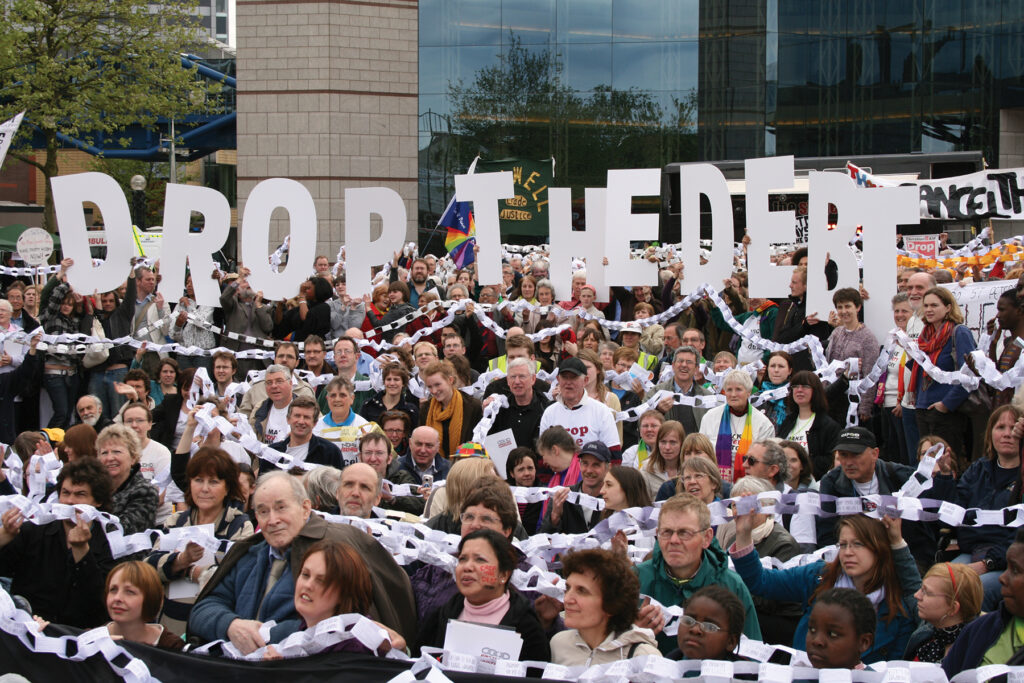
Does forgiveness even belong in a legal system? In her thoughtful book When Should Law Forgive?, Martha Minow begins with this question. If laws are created for the purpose of ensuring accountability to societal norms—by judging and punishing those who cross the line—it could be argued that advocating for forgiveness risks destabilizing the whole system. Yet how can we live without it?
She asks more hard questions. How should the atrocities that child soldiers commit be punished? When individuals or nations are so deeply burdened by debt that repayment is impossible, what is a fair way forward? If one individual is set up with the constitutional power to pardon, when does that power stop promoting mercy and start protecting self-interest? How can the use of computers and artificial intelligence help to limit problematic judicial discretion when reliance on data from an unequal society tends to embed injustice more deeply into the system?
It’s easy to argue that there should be more provisions for forgiveness—of minors, of debtors, and of rebels—in current legal systems, yet Minow raises legitimate cautions. Pressuring people to forgive those who have done them harm can diminish their agency and not serve the cause of justice. Requiring apologies can also produce formulaic responses that have little to do with the deep remorse that is more likely to elicit true forgiveness.
Considering financial debt in particular, the issue of forgiveness lies within an even more complex nexus of political; economic; and social forces, including our faith in the science of accurate measurement and our uneasy relationship with religious values around usury.
I wonder if the scant attention this massive example of forgiveness [Jubilee 2000] received is related to Western discomfort with such a precedent of erasing a carefully measured legal obligation. Yet that obligation is deeply embedded in systemic forces of injustice.
I was delighted not long ago to play a personal role in forgiving medical debt among struggling neighbors in Philadelphia, Pennsylvania, where I currently live. The nonprofit RIP Medical Debt—similar to the Strike Debt movement of Occupy Wall Street—had noticed that unpaid debts are routinely sold to debt collectors at pennies on the dollar. While most are purchased with an intention to extort, they can as easily be purchased with an intent to forgive. It was the holiday season, so I gave the adults in my family the gift of playing their part in forgiving many thousands of dollars of medical debt for our neighbors whose challenges were clearly no fault of their own.
This very small scale and intimate experience with debt forgiveness called to mind another that was breathtaking in its scope and implications. Several years before the turn of the century, a global coalition of interfaith groups started mobilizing for Jubilee 2000. Their goal was to erase debt in the poorest countries of the world. I don’t know all the details, but I do know the end result: one hundred billion dollars of debt, owed by 35 of the poorest countries of the world to financial institutions like the International Monetary Fund, was forgiven—just like that. It was simply written off the books of the lenders, and that was the end of the matter.
I wonder if the scant attention this massive example of forgiveness received is related to Western discomfort with such a precedent of erasing a carefully measured legal obligation. Yet that obligation is deeply embedded in systemic forces of injustice: those with more, who have the capacity to loan at interest, become better positioned to get even more, and those with less, who may be going into debt to make ends meet, then have to pay interest on that debt, which leaves them with still less.
This dynamic is currently playing out on the global scene around climate change. Poor countries, those that are responsible for the least emissions, are suffering the worst effects. At the same time, they are heavily indebted to the wealthier West through a long history of colonial and post-colonial power relationships and industrial imbalances. The costs of servicing that debt severely curtail their ability to spend on health and education, much less climate mitigation. Will more loans from rich countries address this injustice or ultimately make it worse? Who owes whom; who needs to be forgiven here and for what kinds of debt?
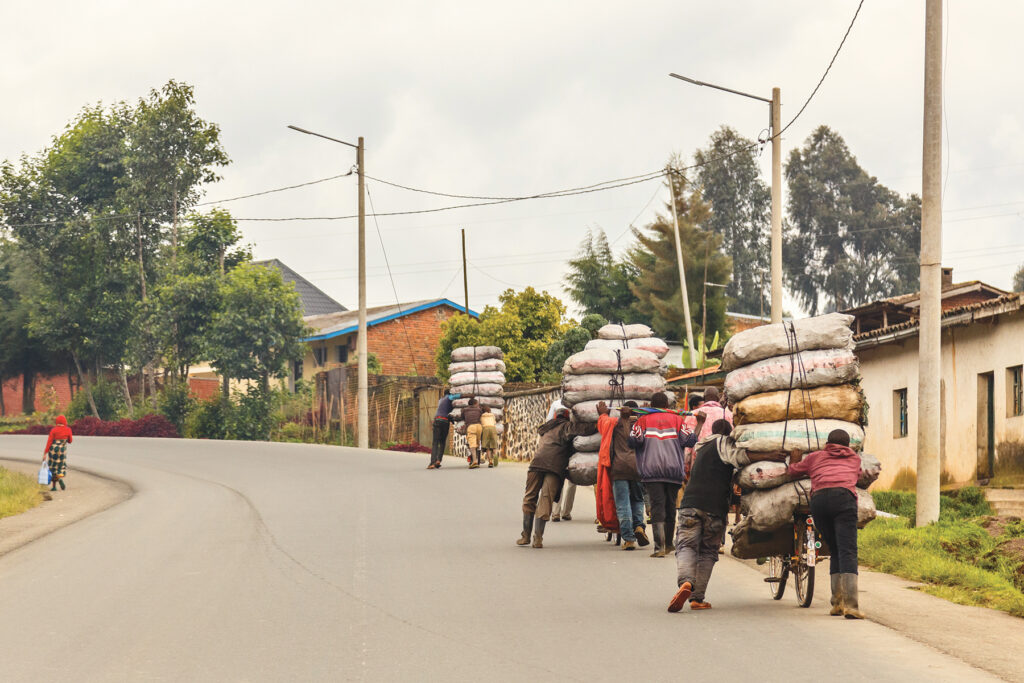
Cultural attitudes around gender color our attitudes toward forgiveness as well. Vengeance is seen as more manly than forgiveness. It also inevitably leads to more pain in cycles of payback, including the death penalty; violence; and wars of all kinds. Yet if we name vengeance as a lazy form of grief, we are called to hold up what is seen as the more womanly tendency to grieve in pursuit of forgiveness. After all, it’s hard to heal without grieving loss. When vengeance can be seen as an aborted form of grieving, it’s clear that we need to build our heart muscles here, both individually and as a society. As we become more able to be present to all that is wrong and be overwhelmed with openhearted grief, we become more able to turn toward healing and change.
There are other gender-related connections to forgiveness beyond grieving. Restorative justice relies heavily on dialogue, communication, imagination, creativity, and intuition: all strengths more closely associated with women than men. On the other hand, women’s readier inclination to forgive can be abused, as is apparent around domestic violence. One of the challenges in restorative justice models is to get the voice of the victim centered in both planning and implementation. Noting the strong models of Indigenous practice that incorporate more compassion and forgiveness than do Western legal systems, we must also note that some have traditionally sidelined women.
In addressing youth by holding up the example of child soldiers and young gang members who have clearly harmed their community, Minow suggests that the best response lies in neither reflexive punishment nor reflexive forgiveness. Rather the issue becomes a larger inquiry into the role adults played in setting these children up to do harm, as well as a means to hold everyone accountable for their actions within a context that allows for forgiveness and moving forward.
Similarly, debtors can acknowledge what they have promised to pay, while the community considers the lending practices that have ensnared them. A solution can then be reached which includes measures of accountability and change for all parties going forward. Amnesties and pardons can be used to heal past divisions and offer opportunities to whole groups of people for a fresh start. The constraints that the law has placed on groups—such as returned citizens, Vietnam War resisters, and undocumented immigrants—can be eased so that we all are more able to leave the past behind.
Forgiveness has been memorably characterized as giving up all hope for a better past. Thus, ultimately, we are on solid ground when we are willing to learn from the past as we bid it farewell, putting all the attention, insight, and love we can gather into the present and the future.
In search for solid ground to pursue both forgiveness and justice in a complex world, I am identifying a few touchstones: focusing less on exacting vengeance and more on finding ways to grieve; addressing community, rather than just individual, transgressions and needs; reaching for restoration and repair rather than legal retribution or formulaic apologies; and dealing in the biggest truths we can wrap our hearts and minds around.
Restorative justice practices, with their emphasis on respect, responsibility, and relationship, are certainly part of this solid ground. When the community can gather around someone who has transgressed, reflect on the conditions within which that individual acted, then consider what needs to happen or change to make the community more whole going forward, good soil is created where seeds of forgiveness can grow.
Forgiveness has been memorably characterized as giving up all hope for a better past. Thus, ultimately, we are on solid ground when we are willing to learn from the past as we bid it farewell, putting all the attention, insight, and love we can gather into the present and the future.
Coming back to East Africa, I offer a reminder of what is possible that I’ve long held in my heart. It is taken from a report from a group of Rwandans who participated in a Friends Peace Teams Healing and Rebuilding Our Communities workshop in 2005. Wanting to put their desire for reconciliation into practice, they decided to visit the prison in Gitega where people accused of participating in local genocide were being held. This is Marius Nzeyimana’s story of their visit:
For me, when we did the visit, it was like putting down a heavy load I had been carrying . . . choosing to reach out was a way of digging out—you know, this root, the root of war, the root of killing—it is deep in our hearts. And we need to uproot it, and in order to uproot it, we need to start by forgiving those who are close, who are in our communities . . . because we have loved each other, and we need them to see the love we are carrying for them and draw them to us. So that’s what we did.
We say in Kirundi, “The medicine of bad actions is not more bad actions.” I learned this to be true. . . . The man who killed my brother now comes to help me cultivate my plot, and I go help him to cultivate his. This makes other people in the village question themselves, saying, “Hmmm, Marius is a Tutsi and the other man is a Hutu. How is it that they are helping each other when they know what happened between their families?” So the visit to Gitega was very, very fruitful. It has really strengthened our relationship, and it has created a sense of forgiveness in our community.


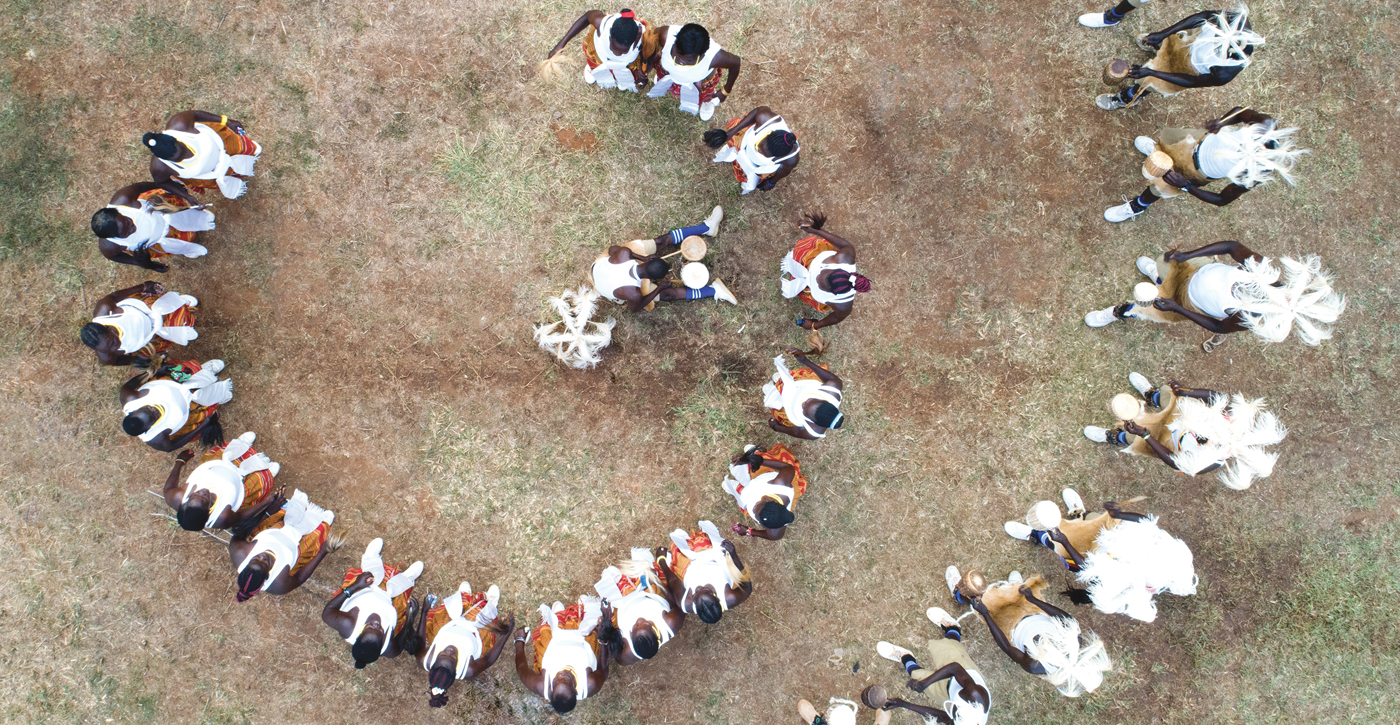
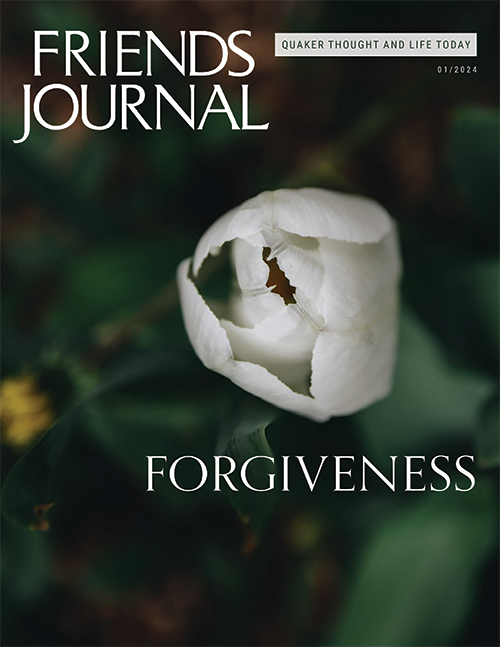
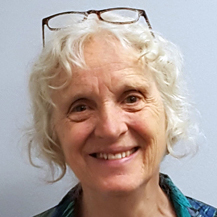
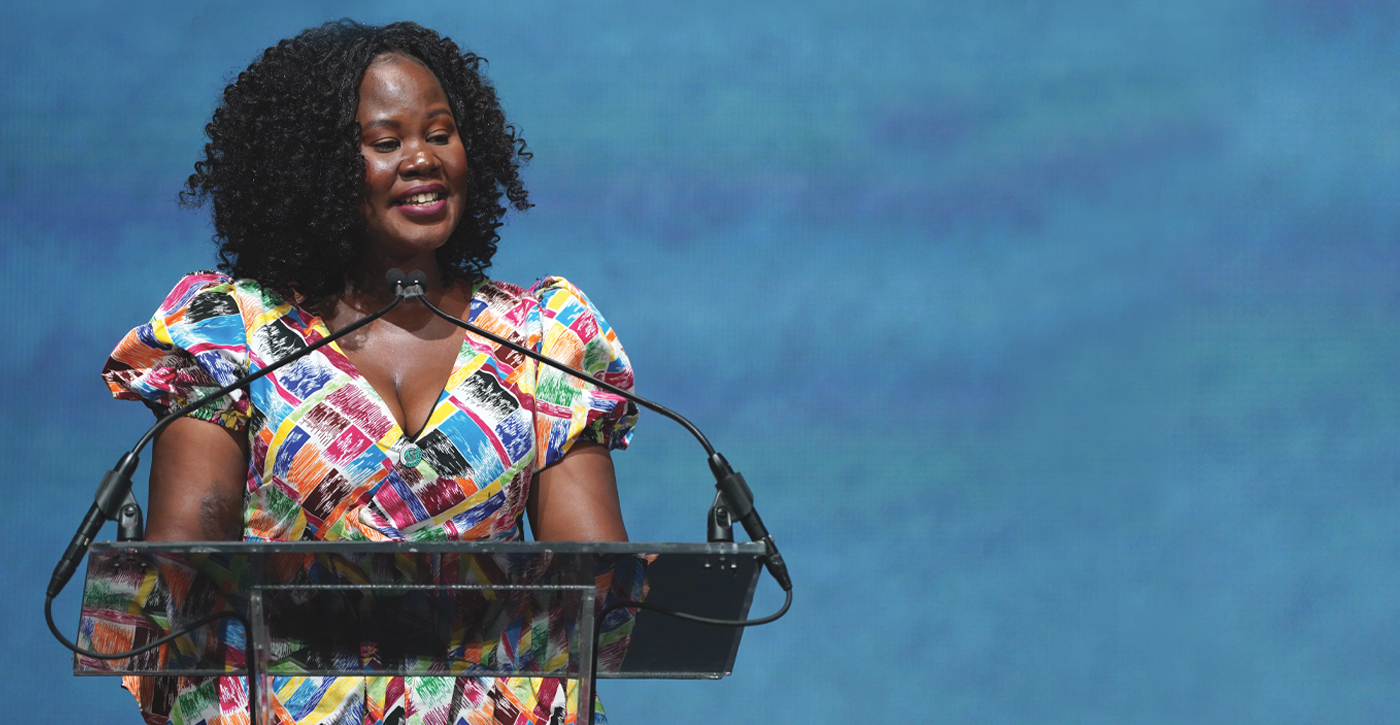
Comments on Friendsjournal.org may be used in the Forum of the print magazine and may be edited for length and clarity.